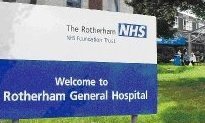The Rotherham NHS Foundation Trust’s non-executive directors have raised concerns about "technical difficulties" with its Meditech electronic patient record implementation.
The trust deployed Meditech in June this year. Phase one included real time bed management, order communications and results, outpatient letters to GPs and discharge summaries.
Papers from the trust’s board meeting in September said the non-executive directors were worried that "technical problems" were “affecting services and the ongoing support to be provided by Meditech.”
In June, concerns were raised regarding, “financial implications in relation to additional workforce requirements.”
A spokesperson from the trust told eHealth Insider that although many areas of the implementation went well, the trust had experienced some operational issues.
“The trust encountered an electronic patient record operational issue in relation to the Choose and Book system,” a statement said.
“Following EPR go-live, some cancelled slots on the Choose and Book system were reopened and patients were booked into them. As a result, patients attempted to attend these appointments which were not available.”
The trust said it had identified the cause of this error, contacted the affected patients and the issue has been “resolved”. However, due to the problems it faced, the trust had to keep certain staff on longer than planned.
“In respect of additional support that we required in order to overcome this issue, the trusts’ data inputters who had been assigned to the EPR implementation remained on this project,” the spokesperson said.
The Rotherham was one of the first trusts to go outside the National Programme for IT in the NHS for an EPR and is the first NHS trust to purchase the latest Meditech system. The value of the deal has been put at £30m – £40m over ten years.
In August, foundation trust regulator Monitor changed the financial risk rating for The Rotherham from three to two due to “deterioration in the trust’s financial position."
A report presented to the trust board in October by soon-to-be-retired chief executive, Brian James, said “compulsory redundancies are inevitable” as the trust cuts bed numbers and staff to save £50m over four years.
The report blamed the trust’s problems on the “economic downturn” and the ‘Nicholson challenge’ to find £20 billion of efficiency savings across the NHS by 2014-15.
Last week, EHI reported that trade union Unison claimed the trust planned to cut 750 jobs over the next three years. However, the trust has yet to make a formal announcement regarding redundancies.

